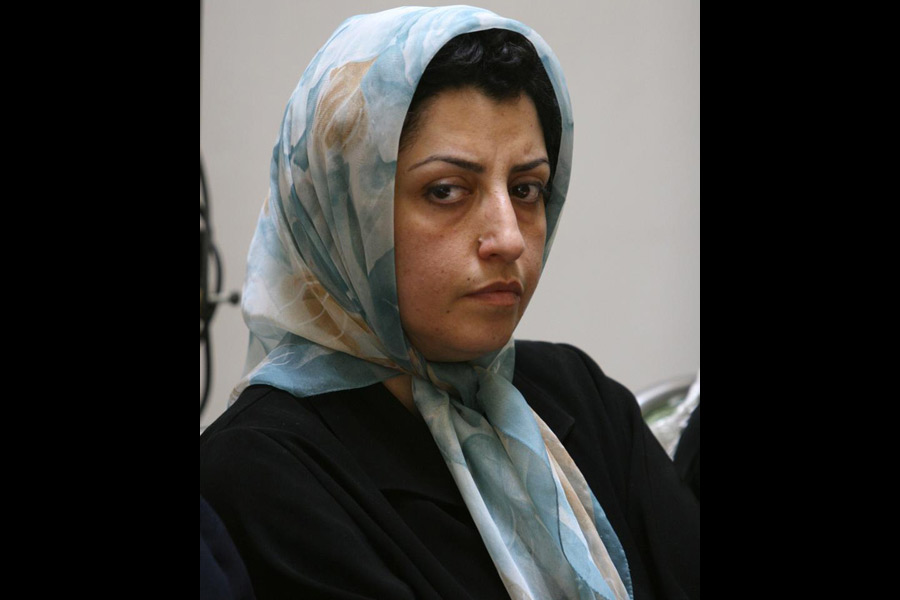|
|
Much is being written these days, especially in the context of West Bengal, about what is wrong with the Communist Party of India (Marxist). For a party that has been in power in the state for more than three decades, this is hardly surprising. But if a party has been in power in a state for more than three decades, then something must also be right with it. Besides, no matter what the outcome of the forthcoming assembly elections, it would still be the case that almost half of the electorate in the two most intellectually advanced states in India, West Bengal and Kerala, would have voted in them for formations led by the CPI(M). What explains this, and also the fact that, notwithstanding all its omissions and commissions, the CPI(M) still continues to attract some of the finest young minds of the country?
The answer is three-fold, and everything I say about the CPI(M) holds generally for the organized Left as a whole. First, it is the only modern force in Indian politics; second, it is the only consistently democratic force in Indian politics; and third, it is the only consistently anti-imperialist force in Indian politics.
Of the two main non-Left political formations in the country, one appeals to Hindutva, and the other appeals to the Nehru-Gandhi dynasty. Both thrive on the essentially feudal features of our society. The CPI(M), in contrast, does not owe its being to the identity of Prakash Karat’s grandfather, or of Sitaram Yechury’s father-in-law. It represents, in that sense, the only residual link to the modernity of the anti-colonial struggle. The Congress, which retained the leadership of the anti-colonial struggle throughout its decisive phase, was largely a modern force during that struggle and, for a while, even after Independence. The leaders were more or less equal, debate was free, and sycophancy, let alone dynastic politics, conspicuous by its absence. Dynastic politics entered the Congress at a later date.
The Hindutva group, in contrast, never had anything to do with the anti-colonial struggle; its political formation always was, and still remains, a front for an organization that is fundamentally pre-modern in its orientation and appeal. But while modernity was absent from the one and abandoned by the other, it still characterizes the CPI(M) as a political force.
Both the non-Left formations have also, at different times, sought to abrogate the democratic nature of our polity. The Congress imposed upon this country the infamous Emergency, which ended only because of a miscalculation on its part and not because of any change of heart — indeed, to this day, it has not expressed any contrition on this score. And the Hindutva formation toyed for long with the idea of altering the Constitution of the country and even set up a commission to suggest recommendations for doing so, until K.R. Narayanan, then the president, stepped in to end that effort. The CPI(M) was in the forefront of opposition on both these occasions. Although the CPI transgressed on the earlier occasion, for which it was later critical of itself.
The CPI(M)’s systematic defence of the democratic rights of the people has paradoxically been somewhat belied by its own reticence in theorizing the nature of democracy in societies like ours, and by the pervasive association — derived from historical experience but lacking any theoretical justification — of communism with one-party rule. But this defence has been as steadfast as it has been forceful. In contrast, on the issue of secularism, where the party, free of any historical baggage, has been more forthright in theorizing its praxis, its role in defending secularism has been more widely acknowledged.
Critics often point to this or that misdemeanour on the part of the CPI(M) cadre, this or that action on the part of the CPI(M) ‘hoodlums’ to contest the CPI(M)’s commitment to democracy. But even if each of the alleged misdemeanours happens to be true, it would be crass empiricism — or, what comes to the same thing, crass moralism — to deny the CPI(M)’s historical commitment to democracy from a set of individual incidents of the sort that all political formations at the ground level can be accused of.
But even more significant than the two features mentioned above is the CPI(M)’s consistent commitment to anti-imperialism, which indeed constitutes its real differentia specifica. Imperialism is more than ‘the Empire’, and anti-imperialism is more than mere Bush-bashing, opposition to the Israeli aggrandizement in Palestine or American aggression in Iraq and Afghanistan. Anti-imperialism, in short, is not moral opposition to this or that venture on the part of the hegemonic power of the time. It is a whole approach to politics that sees every issue of the day from the perspective of globally-spanning class relations of domination and subordination. And the CPI(M), and the Left in general, is the only force in India, that does so consistently. It sees the Indo-US nuclear deal not just as a ‘nuclear deal’ but above all as an ‘Indo-US deal’. It evaluates the deal not in terms of the costs and benefits of nuclear power (although the deal is questionable even on this score), but in terms of what it portends for India’s relationship with American imperialism.
Many would not agree with what they would see as the CPI(M)’s ‘obsession’ with imperialism, an obsession that even made it withdraw support from the United Progressive Alliance government, in spite of the obvious short-term political costs of that withdrawal. Many would not even subscribe to the concept of imperialism itself, the most radical among them remaining satisfied with the concept of the empire or the ‘evil empire’.
But, if one sees imperialism as a global system and not just as the evil actions of this or that American president, then one cannot help admiring a party that can stake everything on a principled opposition to the Indo-US nuclear deal. Indeed, the very lack of ‘pragmatism’ that characterized its total opposition to the deal — which political pundits and commentators to this day have seen as sheer folly — is what marks it out as a political party and endears it to the thousands who do subscribe to the concept of imperialism. It is this consistent and principled anti-imperialism on its part that makes writers like Noam Chomsky feel concerned when ‘progressive’ sections in India launch a no-holds-barred attack on the CPI(M).
The ultra-Left is, at best, lackadaisical in its anti-imperialism. What it thinks on a whole range of issues concerned with imperialism today is anybody’s guess (buried, perhaps, in arcane pamphlets). And the fact that it treats the CPI(M), which is a consistent anti-imperialist force, as its main enemy, suggests the secondary role, at best, that it assigns to imperialism in its calculations, highlighting once more the difference between the ultra-Left and the CPI(M) on the issue of imperialism.
The central question of the last hundred years has been the nature of the modernity brought by imperialism to the periphery. The national movement was fought on this issue. The progressive elements of the national movement, who split off to form the Communist Party, believed that authentic modernity could come only by an alternative route, socialism. While the promise of socialism has been belied for the moment, and many (perhaps including even Amartya Sen) have seen in neo- liberalism the promise of a progressive modernity, the CPI(M) has never given up its perspective on imperialism. It has seen in neo- liberalism the form that imperialism takes in the current epoch, and has continued to hold up a vision of an alternative anti-imperialist modernity. (This, notwithstanding a passing phase of naïve ‘developmentalism’ in West Bengal, for which it has been self-critical.) Anti-imperialism, it believes, is not a ‘fundamentalist’ but a modernist position. And that, in my view, is what is right about the CPI(M).











